ECONOMY
If You’re In Credit Card Debt, Do These 33 Things As Soon As Possible
Published
3 months agoon
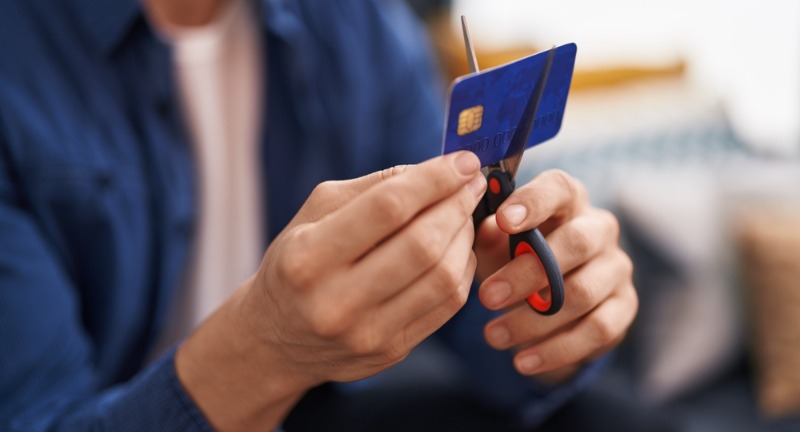
Shutterstock
Dealing with credit card debt can feel like an uphill battle, but it’s a challenge you can conquer with the right strategies and habits. By implementing small yet intentional money-saving practices, you’ll not only lighten your financial load but also set yourself up for long-term success. To put it simply, when you’re in debt, it’s crunch time. As such, this guide offers practical tips that go beyond just numbers, helping you reclaim control, celebrate progress, and stay motivated on the road to a debt-free life.
List all debts

Shutterstock
Write down all your outstanding credit card balances. Include every card you own, even those with small balances, to get a full picture of your debt. This process is key to understanding your financial situation and preparing to tackle the problem. Seeing the total amount written out can be a motivating and eye-opening step toward managing your debt.
Calculate total debt
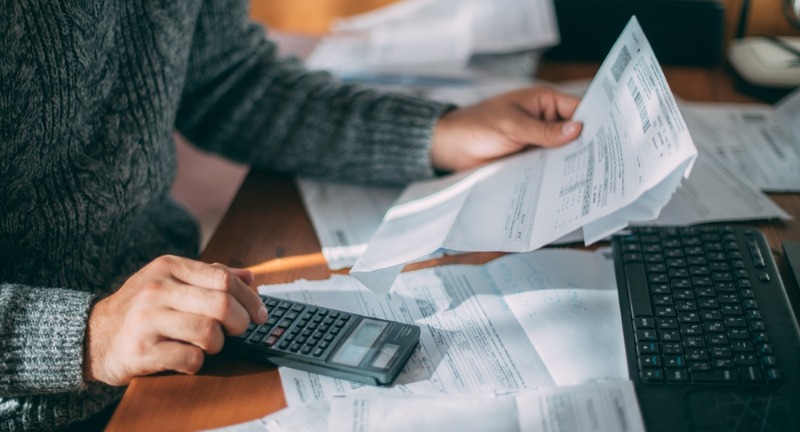
Shutterstock
Add up all your outstanding balances to determine your total debt. The first step is that simple. Seeing the full number can feel daunting in the moment, but it’s important for understanding the scope of your finances as well as what practices you should be implementing in the future. Knowing this figure helps you set goals for repayment that are, above all else, realistic. It also gives you a starting point for measuring your progress over time.
Identify interest rates

Shutterstock
List and keep track of the interest rates associated with each credit card. Focus on the ones with the highest rates, as these will cost you the most over time, if left unattended. Interest can snowball quickly, so gaining this knowledge quickly is crucial for plugging any unnecessary cash leaks.
Check minimum payments
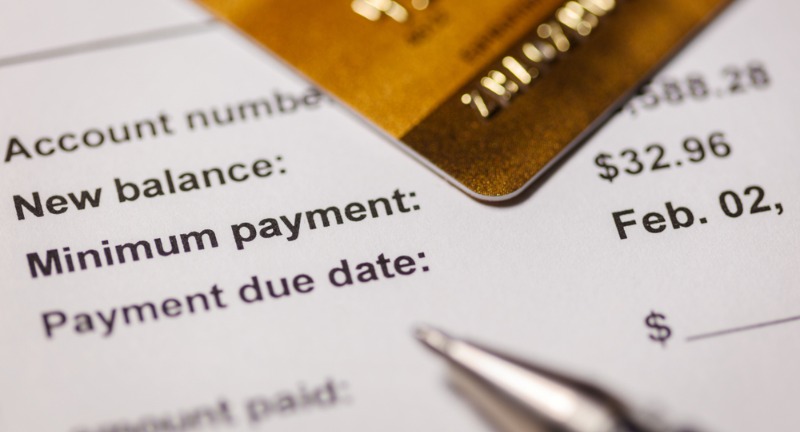
Shutterstock
Minimum payments on credit card debt are the smallest amount you’re required to pay each month to keep your account in good standing. While it might seem convenient to stick to the minimum, it’s a costly trap. Minimum payments primarily cover interest, meaning your balance decreases at a snail’s pace, keeping you in debt far longer. By paying more than the minimum—ideally as much as you can afford—you’ll significantly reduce the time it takes to pay off your debt and save money on interest in the long run.
Create a budget

Shutterstock
Don’t wait when it comes to setting up a detailed budget that outlines your income and expenses. It may take a small amount of up-front effort, but the results more than make up for it. A well-structured budget lets you see where your money goes and find areas to cut back. This is the foundation of any successful debt repayment plan.
Cut unnecessary expenses

Shutterstock
Identify and eliminate discretionary spending that isn’t essential. While it sounds straightforward, the process involves active consideration about what you consider to be unnecessary. This might include dining out, subscription services, or luxury purchases. Redirecting these funds toward your credit card payments accelerates your debt repayment journey. Just remember, small sacrifices now can lead to big rewards later, including financial freedom.
Increase income streams
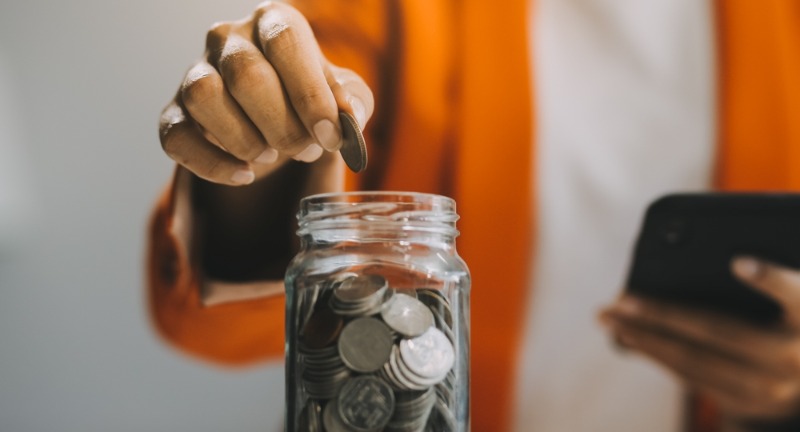
Shutterstock
Consider taking on a side hustle, freelancing, or turning a hobby into a small business to bring in extra cash. You could also explore opportunities for overtime or negotiate a raise at your current job. Every additional dollar you earn can go directly toward reducing your debt, helping you break free faster and with less financial strain.
Prioritize high-interest debts
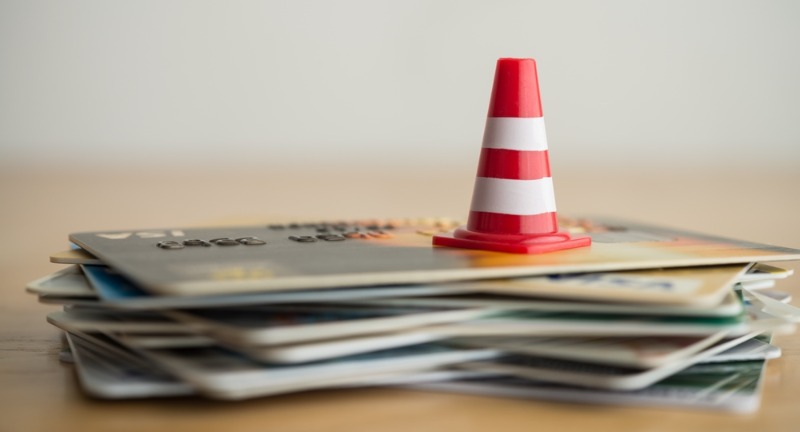
Shutterstock
Tackling high-interest debts first is one of the smartest ways to reduce your overall financial burden. These debts accumulate interest quickly, making them more expensive the longer they linger. By focusing your payments on these balances while maintaining minimum payments on others, you’ll save money in the long run. It’s like putting out the biggest fire first—once it’s extinguished, the rest becomes far more manageable.
Utilize public libraries for free resources

Shutterstock
It’s strange how we often forget the usefulness of a library when it comes to grabbing books or movies, especially since the cost of these forms of entertainment is just a simple drive through town! A simple library card eliminates the need for expensive subscriptions or one-time purchases, and redirecting these savings to your credit card debt helps reduce balances faster. Libraries are like a treasure trove of cost-free opportunities to enrich your life while staying on budget.
Negotiate lower interest rates

Shutterstock
Contact your credit card companies and ask for a lower interest rate. Many issuers are willing to work with customers who have good payment histories. Even just taking the chance of lowering your rate could reduce the cost of your debt and make repayment easier. A simple phone call could save you hundreds or even thousands of dollars over time.
Reduce utility bills with smart habits

Shutterstock
Cutting down on utility bills is a simple yet effective way to free up extra cash for tackling debt. Start by adopting energy-saving habits like unplugging electronics when not in use, switching to LED bulbs, or turning down the thermostat a notch—your wallet (and the planet) will thank you! Don’t forget, you can also negotiate with providers for better rates or explore discounts and efficiency programs.
Consolidate debts
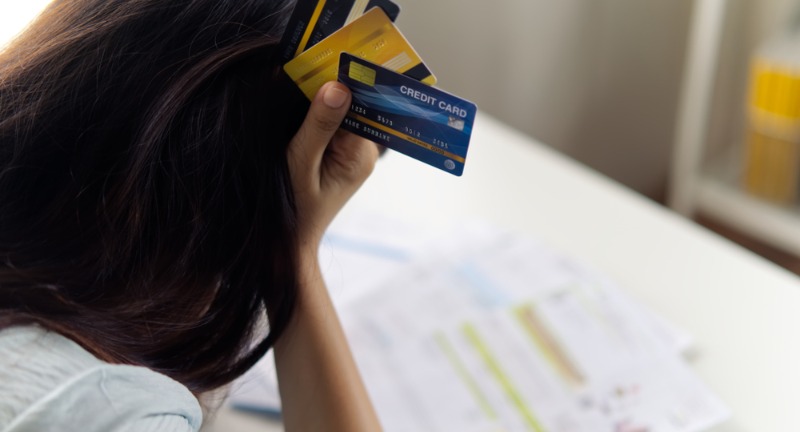
Shutterstock
Consolidating debts can simplify your financial life and save you money on interest. By combining multiple balances into a single loan or credit account, often with a lower interest rate, you can streamline payments and reduce overall costs. Options like personal loans or balance transfer credit cards are popular choices for consolidation. This strategy not only makes managing debt easier but also provides a clearer path toward becoming debt-free faster.
Prepare meals at home

Shutterstock
Cut down on dining out and focus on preparing meals at home. Home cooking is significantly cheaper and can be just as enjoyable with a little planning beforehand. Plus, if you try meal prepping, you’ll save time in the long run while still encouraging healthier eating habits.
Consider using balance transfer cards

Shutterstock
Balance transfer cards can be a strategic tool for tackling credit card debt. These cards often offer a low or even 0% introductory interest rate for a set period, giving you breathing room to focus on reducing your balance without the added burden of interest. By transferring high-interest debt to one of these cards, you can save money and make more significant progress in paying off what you owe. Just be mindful of transfer fees and ensure you pay off the balance before the promotional period ends to avoid higher rates kicking in. While balance transfer cards can be a lifesaver, it’s always best to do your research first.
Set up automatic payments
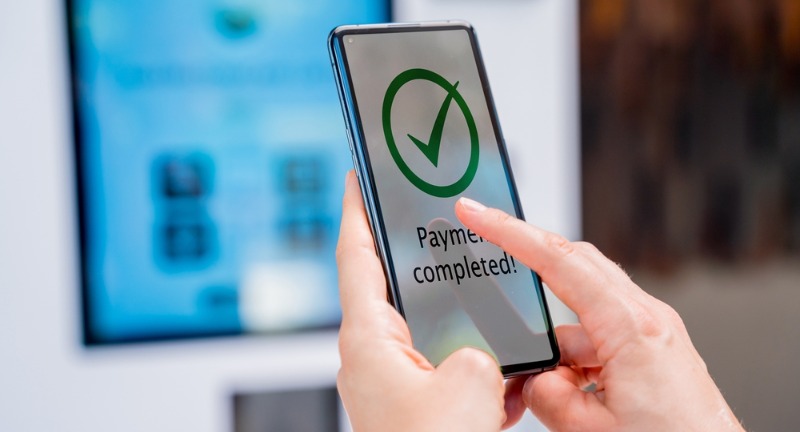
Shutterstock
Automate your credit card payments to ensure you never miss a due date. Late payments can lead to penalties and increased interest rates, adding to your financial burden. Automatic payments help maintain a positive payment history, which is good for your credit score. Consistent payments also keep you on track toward eliminating your debt.
Practice the 30-day rule

Shutterstock
The 30-day rule is a simple but powerful way to curb impulse spending and keep your budget intact. Here’s how it works: when you’re tempted to make a non-essential purchase, give yourself 30 days (or about a month) to think it over. Chances are, the urge will pass, and you’ll realize you don’t really need it after all. This little pause helps you make more intentional decisions about your spending, and every purchase you skip is a win for your wallet and your credit card balance!
Create a financial buffer
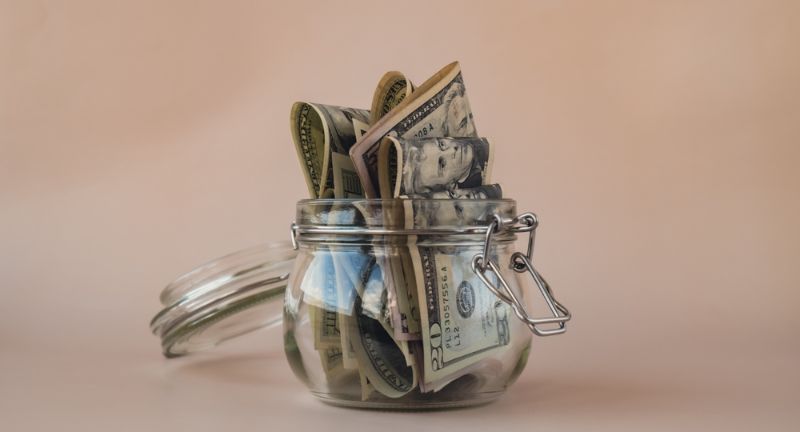
Shutterstock
Building a small financial buffer, even as little as $500, can save you from relying on credit cards for unexpected expenses. Start by setting aside a small amount each paycheck into a dedicated savings account. This cushion gives you peace of mind and helps break the cycle of adding to your debt. Over time, a larger buffer can provide even greater financial security.
Avoid new credit card expenses
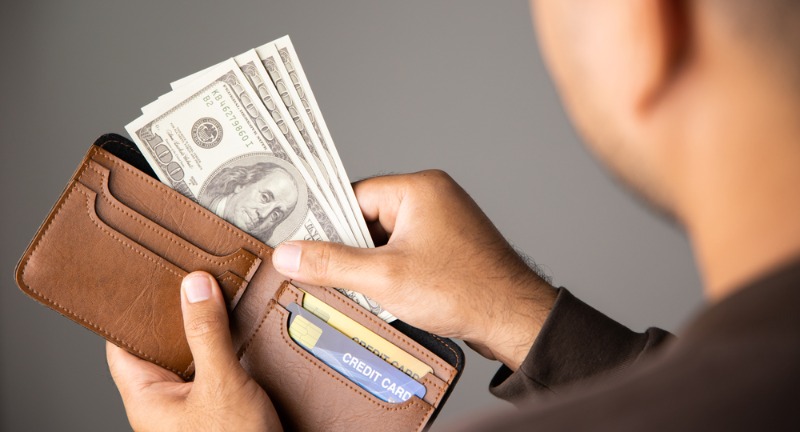
Shutterstock
It’s tempting to swipe your credit card for convenience, but keeping it in your wallet can save you from adding to your debt. Think of it as a mini financial detox: only spend what you’ve already earned. By hitting pause on new credit card purchases, you’re giving yourself the breathing room to tackle your current balances without piling on more. Plus, the satisfaction of watching your debt shrink beats any impulse buy, guaranteed!
Celebrate small milestones

Shutterstock
Celebrating small milestones is a great way to stay motivated on your financial journey. Paid off your first credit card? Treat yourself to something simple, like a nice meal at home or a relaxing day off—it’s about the acknowledgment, not the splurge. These little rewards remind you of how far you’ve come and make the process feel less like a grind. By focusing on your wins, no matter how small, you’ll stay energized and ready to tackle the next goal.
Freeze your credit cards
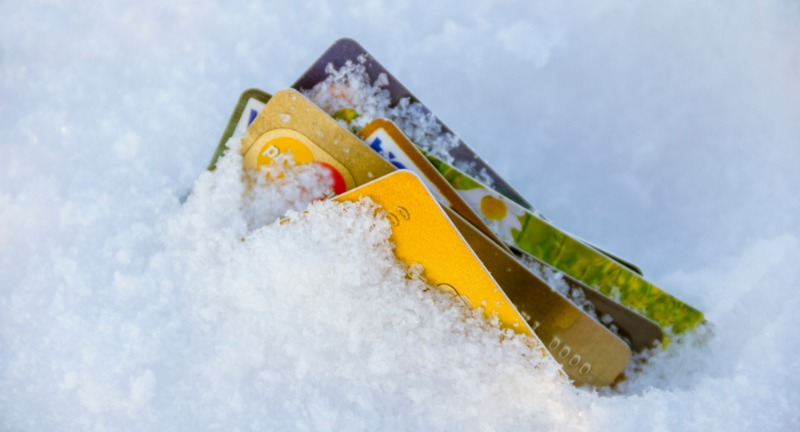
Shutterstock
Freezing your credit cards—whether literally in a block of ice or figuratively by storing them out of reach—is a clever way to curb spending. The extra step of unfreezing them forces you to pause and think before making a purchase, helping you avoid impulsive decisions. This tactic lets you focus on paying down existing balances rather than accidentally adding to your debt. It’s a simple yet effective trick to keep your finances on track and break bad spending habits.
Avoid payday loans

Shutterstock
Steering clear of payday loans is one of the smartest financial decisions you can make. While they may seem like a quick fix for cash shortages, their sky-high interest rates and short repayment terms often create a cycle of debt that’s hard to escape. Instead, explore alternatives like negotiating payment plans with creditors, borrowing from friends or family, or using local community resources.
Shop secondhand whenever possible

Shutterstock
There’s a reason that thrifting, despite being a subculture, is highly regarded by the people that do participate in it. High-quality items can often be found at a fraction of retail prices at many secondhand locations, and the savings you gain can be funneled straight into paying off credit card debt. Plus, buying secondhand is an environmentally friendly choice that aligns with sustainable living.
Cut down on recurring expenses
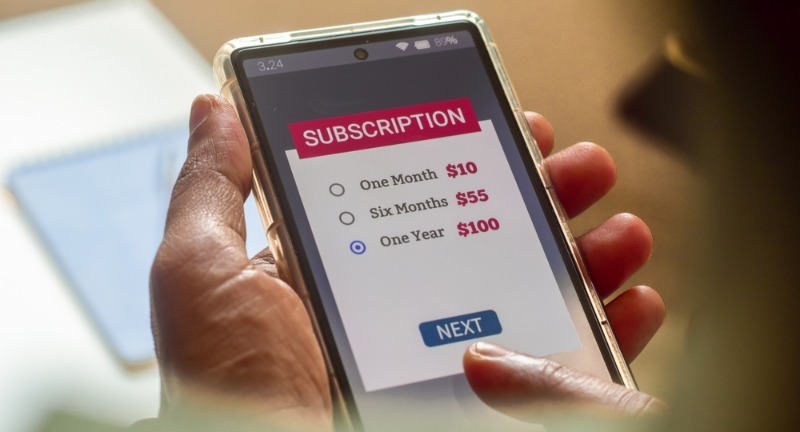
Shutterstock
Review your monthly bills and look for opportunities to save by renegotiating rates, canceling unused services, or finding more affordable alternatives. Use these savings to make a bigger dent in your credit card debt or bolster your financial goals. Trimming the fat from your recurring expenses is a simple way to build long-term financial flexibility.
Track spending daily

Shutterstock
Tracking your spending daily might sound like a bit of a chore, but it’s one of the easiest ways to stay on top of your finances and avoid falling deeper into debt. By jotting down every expense, even the small ones, you get a clear picture of where your money’s going. This daily habit keeps you mindful of your choices and can highlight areas where you might be overspending—like that daily coffee run. The more aware you are of your spending, the better equipped you’ll be to make smart, debt-busting decisions!
Consider credit counseling

Shutterstock
If managing your debt feels overwhelming, credit counseling can be a game-changer. Think of it as having a financial coach in your corner—someone who can help you create a budget, understand your options, and develop a plan to tackle your debt. Many nonprofit credit counseling agencies offer free or low-cost services, making it a practical and accessible resource. Sometimes, all it takes is a fresh perspective and a bit of guidance to turn a daunting situation into a manageable one.
Sell unused items for extra cash

Shutterstock
Try decluttering your home and selling items you no longer need, such as clothes, electronics, or furniture. Use online marketplaces, garage sales, or consignment shops to turn these unused items into extra cash for spending, or ideally, debt repayment. This simple strategy helps to relieve the strain that debt puts on so many people.
Set realistic financial goals

Shutterstock
Setting realistic financial goals is like giving yourself a roadmap to success—manageable, clear, and motivating. Start small by focusing on milestones you can achieve, like paying off one credit card or saving a specific amount each month. Unrealistic goals can feel discouraging, but achievable ones keep you inspired and give you something to celebrate along the way. Remember, progress is progress, and every step forward brings you closer to financial freedom.
Stay motivated by tracking progress
Shutterstock
In order to stop yourself from losing interest in the process, try monitoring your debt repayment progress regularly to stay motivated. Refer back to any spreadsheets, apps, or visual trackers you’ve been using to see how much you’ve paid off and how much remains. Watching your balance decrease can be incredibly encouraging, and ideally, reinforce your commitment. Celebrating small wins along the way is all about keeping your spirits high and your momentum strong.
Embrace DIY projects

Shutterstock
Embracing DIY projects is a fun and rewarding way to save money while flexing your creative muscles. Whether it’s tackling home repairs, crafting your own gifts, or whipping up meals instead of dining out, doing it yourself can significantly cut costs. Plus, the sense of accomplishment you’ll get from creating something with your own two hands is priceless. Every dollar saved on DIY projects can go straight toward shrinking your credit card debt—talk about a win-win!
Educate yourself on personal finance

Shutterstock
Invest time in learning about personal finance through books, podcasts, or online courses. When you’re in debt, it should be your responsibility to gain the necessary amount of comprehension to be constantly aware of all of your debt’s moving parts, whether they’re working for you or against you. In short, understanding topics like budgeting, saving, and investing can empower you to make smarter financial decisions.
Plan for life after debt

Shutterstock
Start envisioning what your financial life will look like once you’re debt-free. Once you’ve paid off your credit cards, consider redirecting those payments into savings, investments, or long-term goals like a vacation or homeownership. Think of this as your chance to build the life you’ve been working toward, free from the weight of high-interest payments. With a clear plan in place, you can transition from just getting by to thriving financially, all without falling back into old habits.
Create a strict grocery budget

Shutterstock
Plan your meals and stick to a strict grocery budget to avoid overspending. Use shopping lists, compare prices, and opt for generic brands to save money. The extra cash you save from smart grocery shopping can go directly toward paying down credit card debt. Though the price of groceries can seem insignificant, even for more expensive variants, there’s no denying that small, consistent savings add up and accelerate your journey to financial freedom.
Switch to a cash-only spending system

Shutterstock
Switching to a cash-only spending system can feel like hitting the reset button on your financial habits. There’s something about handing over actual cash that makes you think twice about every purchase—it’s like your wallet saying, “Are you sure about this?” By ditching the cards and sticking to a set amount of cash, you’ll naturally spend less and stay within budget. It’s an old-school approach that works wonders for keeping your spending in check and your debt from growing any further.
Conclusion

Shutterstock
Breaking free from credit card debt is more than just crunching numbers—it’s about transforming your habits, making mindful choices, and embracing a brighter financial future. Each small step you take brings you closer to a life free from the burden of high-interest payments and constant stress. As you implement these strategies, remember to celebrate your progress and stay focused on your ultimate goal. With persistence, determination, and a solid plan, you’ll not only conquer your debt but also build a foundation for lasting financial wellness.
More From Local News X
-


26 Things That People Under 30 May Not Understand
-


20 Most Common Home Renovations People Make Within The First…
-


The Evolution Of Technology From The 1950’s To Now
-


39 Ways To Make Better Spending Decisions Over Time
-


30 Things To Do Before Turning 30 Years Old
-


17 U.S. Cities Where Second Home Buyers Are Driving Up…
-


22 Top Things To Consider Before You Pack Up And…
-


25 Most Influential Inventions That Baby Boomers Have Witnessed Come…
-


25 Challenges Kids Are Facing Now That They Didn’t Face…
-


A Boomer’s Guide To Retirement, 25 Tips To Be Prepared…
-


25 Classic Movies That Are Worth Seeing At Least Once
-


25 Most Common Travel Blunders People Make And How To…
